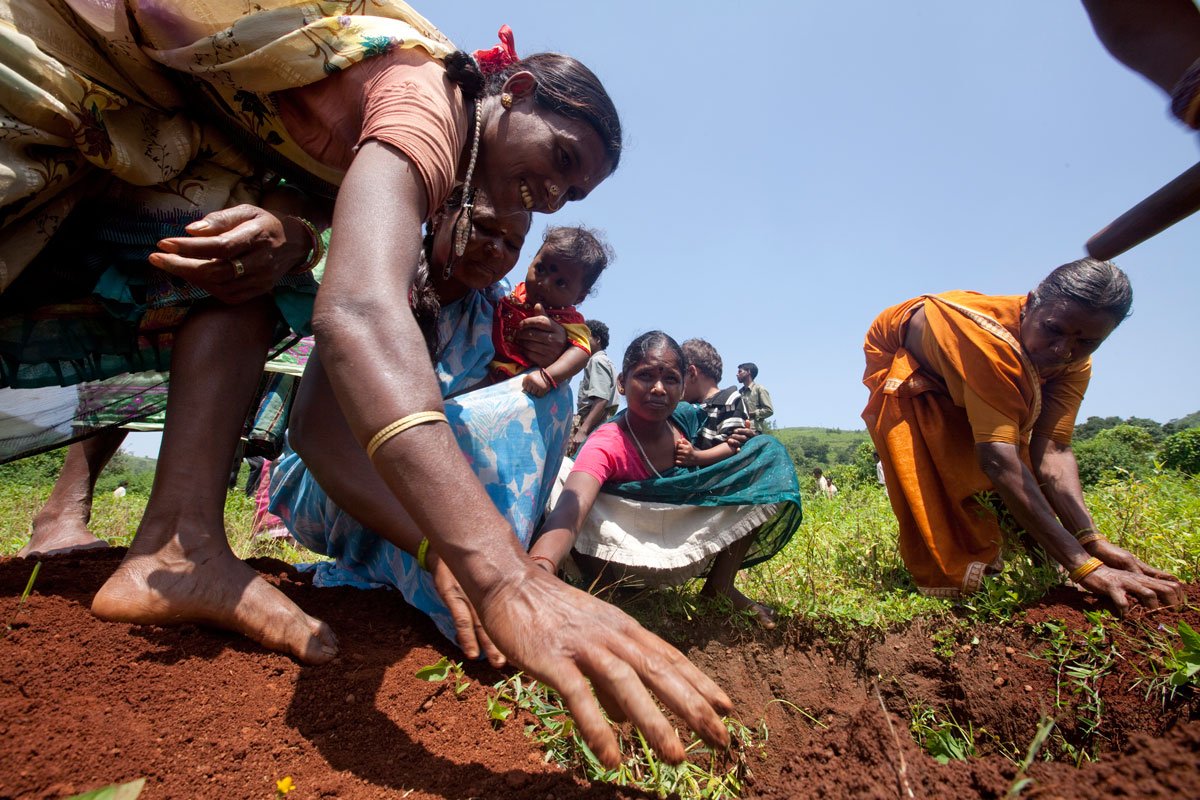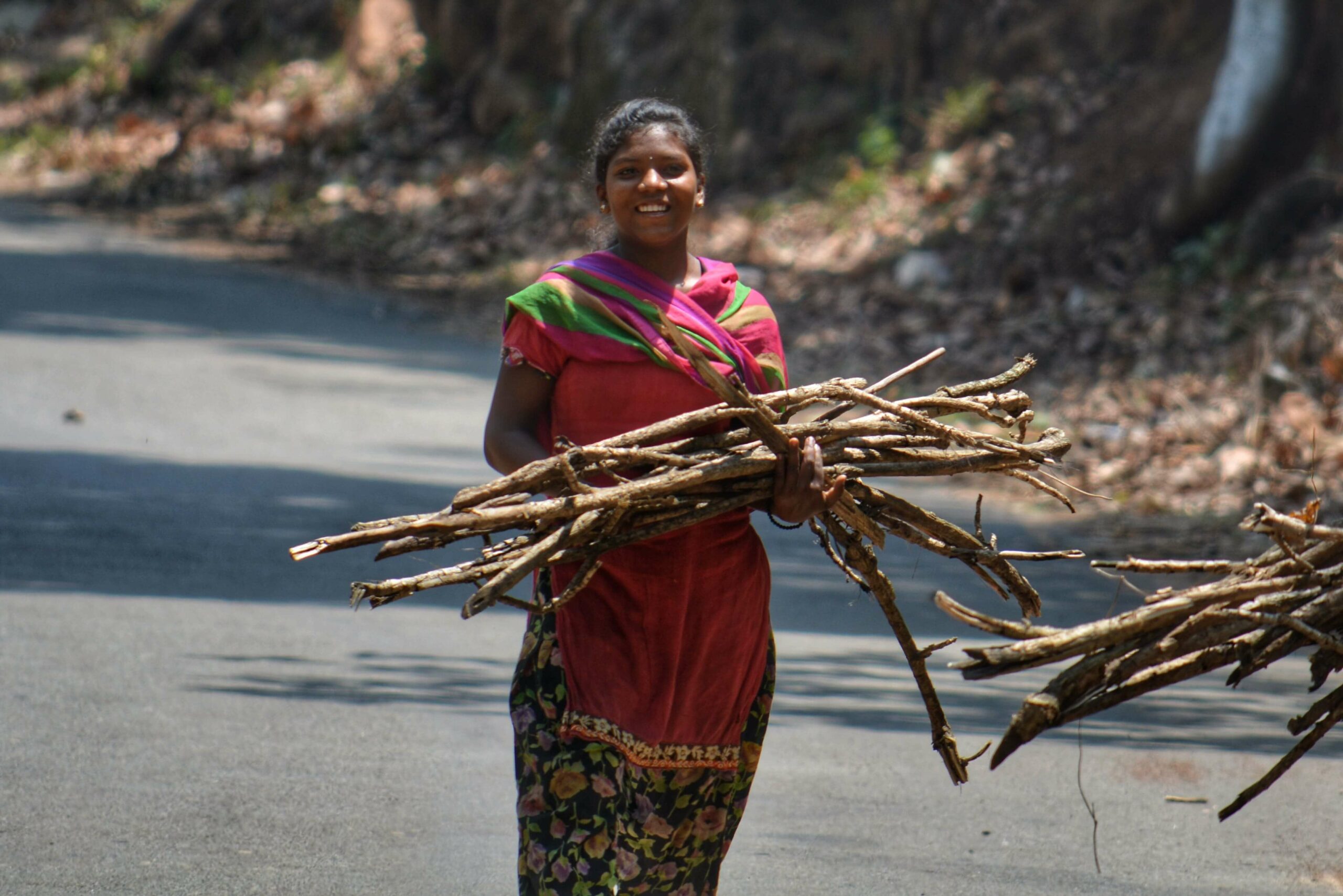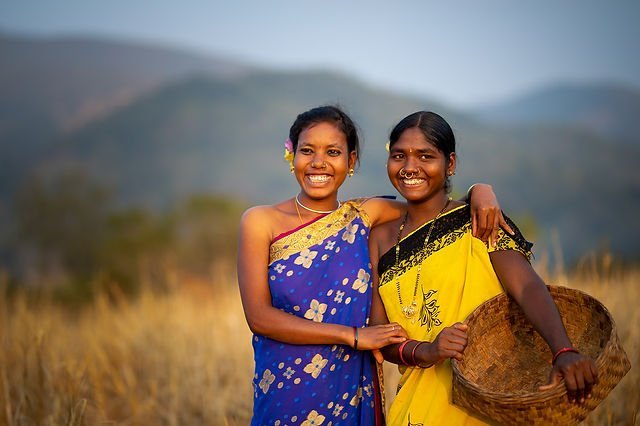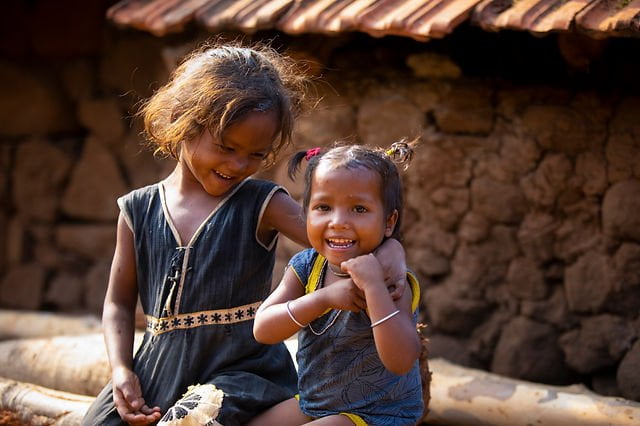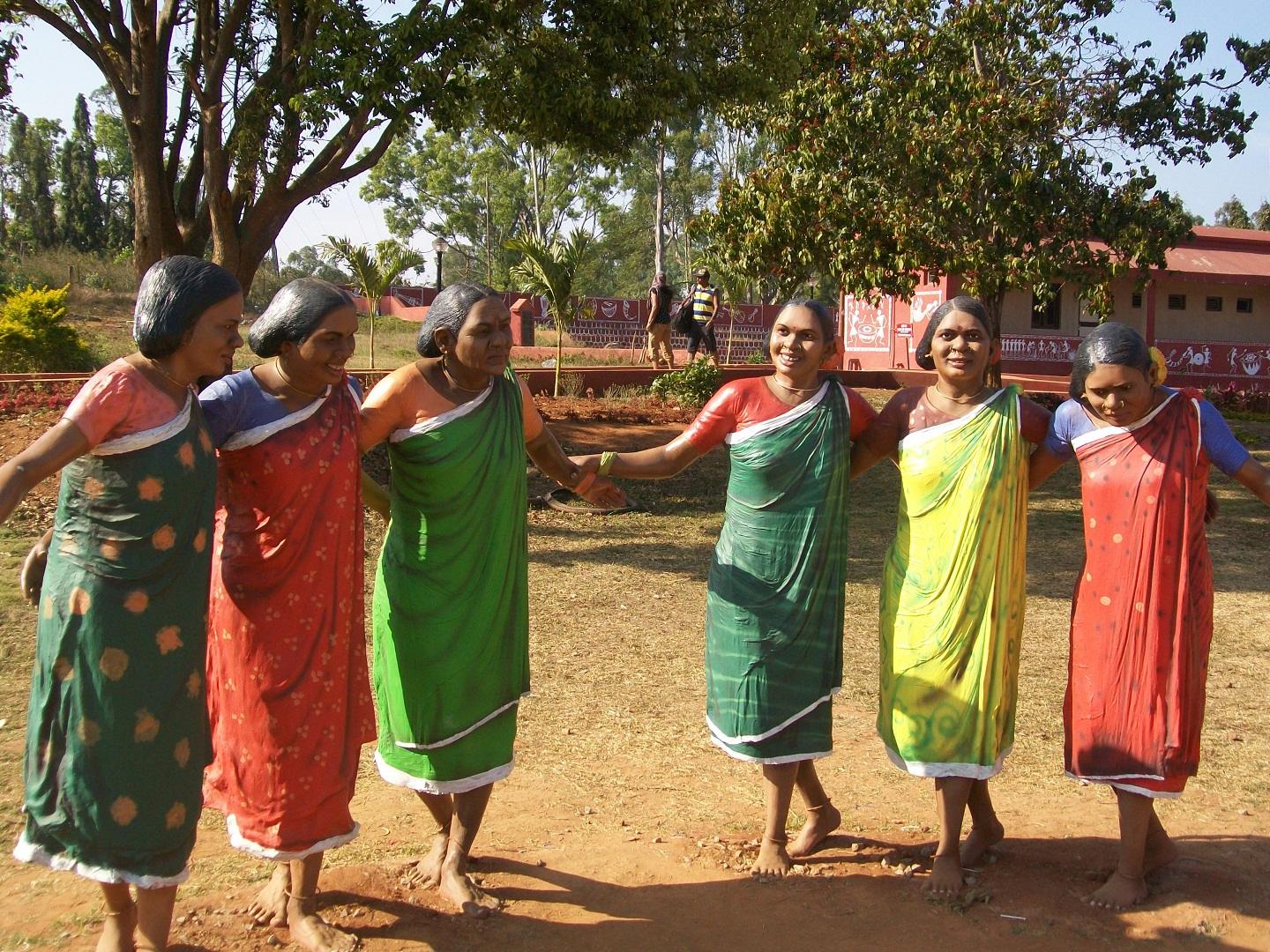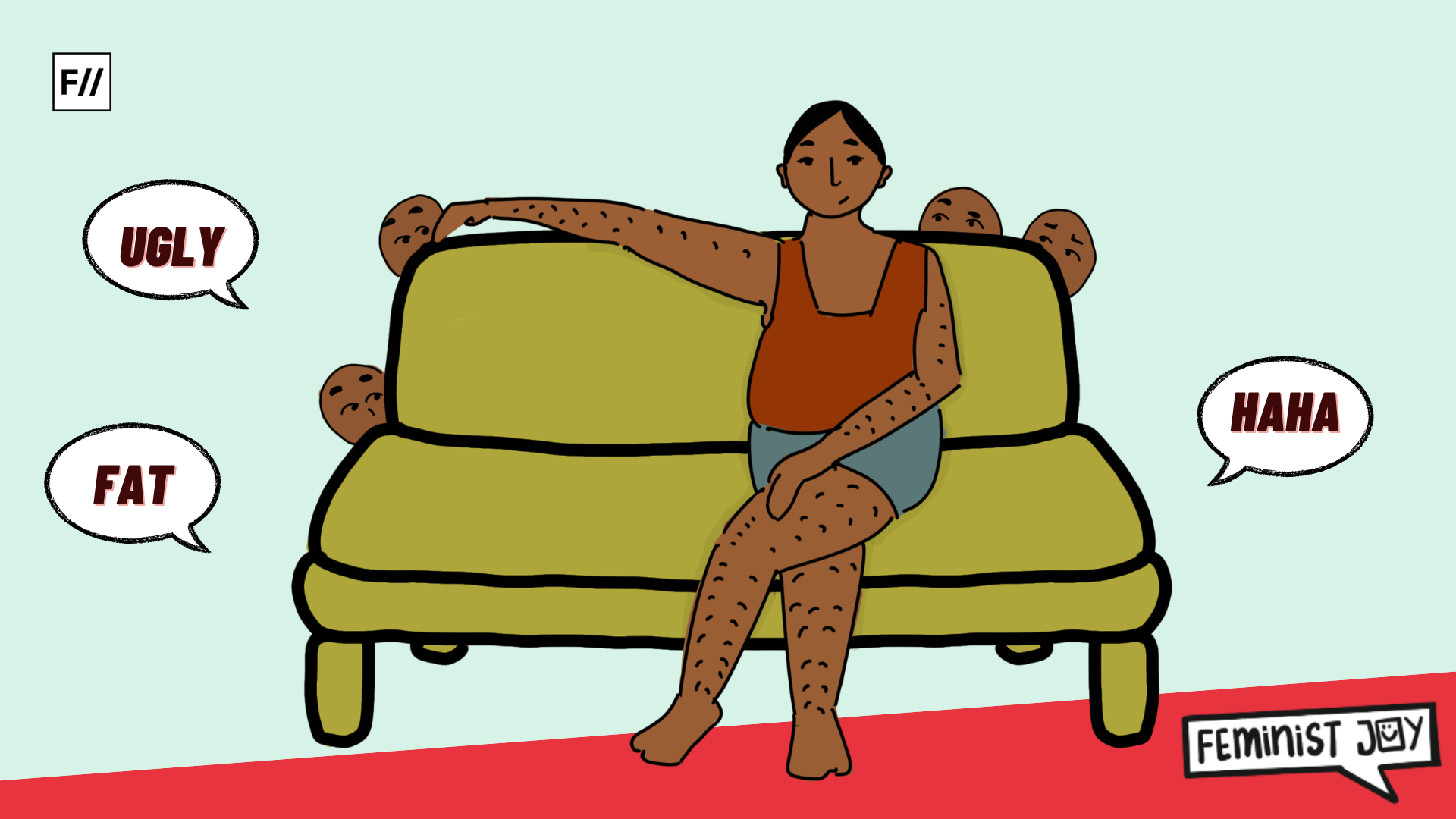Araku Valley is famous for its Arabica coffee and pepper and is located in the Eastern Ghats, about 114 km away from Visakhapatnam in the state of Andhra Pradesh. It is attached to the border of Orissa and is a relatively lesser-known yet beautiful hill station surrounded by the Ananthgiri and Sunkri Metta reserved forests. The valley is inhabited by many tribal groups such as Khord, B. Mallis, Nookadora Bagata, Gadaba, Koya, and Savara, with some of them falling under Particularly Vulnerable Tribal Groups. The people mainly speak Telugu, Oriya, and their local community language.
During our field visits, we had the privilege of exploring villages such as Vasabanda, Sunna Metta, Nadi Valasa, Bondom, and Gangagudi in the vicinity of Araku.
As a student of Development , I participated in a field immersion experience with my peers in the captivating Araku Valley as part of my academic curriculum in the month of October, 2023. This opportunity allowed us to explore its scenic landscapes, observe the diverse local population, and gain insights into the rich cultural tapestry that includes traditions, festivals, Dhimsa Dance, and the challenges faced by the tribal community. During our field visits, we had the privilege of exploring villages such as Vasabanda, Sunna Metta, Nadi Valasa, Bondom, and Gangagudi in the vicinity of Araku. In addition, we had the chance to visit the Araku local market, the hub of the economy, and the tribal museum, which served as a good starting point to explore the life, history, culture, and traditions of the tribal people of Araku. We met and conversed with tribal people, including men, women, and children, and traversed the place, resulting in an enriching experience.
Much has been written about the picturesque geography of the region and the challenges faced by tribal communities. I would like to give a disclaimer that my intention is not to delve extensively into these topics. Instead, I aim to offer observations of what I saw as an outsider and highlight the unique legacy that these tribal people have for the world to learn.
Navigating Gender and Development, as part of the course in a classroom setting, we often see robust discussions in metropolitan cities and in typical feminist clubs. These discussions often revolve around complex theories and issues such as patriarchy, gender equality and inequality, and gender justice, among others. This experience has prompted me to reflect on how these topics resonate in the context of the tribal communities I visited, shedding light on the distinct perspective they contribute to the broader discourse.
Balancing household, community, and nature In Araku valley
In the midst of grappling with challenges such as inadequate health facilities, subpar education infrastructure, and livelihood struggles among tribal populations, there exists a wealth of insight that these tribal communities provide us as a society, especially in terms of women. In the tribal communities of Araku Valley, women play a pivotal role in shouldering responsibilities with men in maintaining a crucial balance between household, community, and the environment.
The women of Araku Valley merit particular recognition for their multifaceted roles that go beyond basic sustenance.
The women of Araku Valley merit particular recognition for their multifaceted roles that go beyond basic sustenance. While both men and women contribute to the tribe’s survival, women bear an additional layer of responsibility. Their daily activities involve a tapestry of household tasks, family care, and the preservation of tribal traditions. Yet, their responsibilities extend further. These women serve as the guardians of their surroundings, playing a vital role in protecting the rich green landscapes and maintaining the delicate equilibrium between humanity and nature.
The transmission of traditional knowledge, encompassing areas such as traditional medicines and clothing designs, is a central aspect, with women serving as key passers from one generation to the next. Showing us the seeds of red rice, a tribal woman, Parmila proudly claims, ‘These seeds can be found here only. Our great great ancestors have preserved them for us. We will be giving it to our children.’
They are still in the process of becoming familiar with this new modern world, as some of them live in very remote hilly areas. Their sustenance is intricately tied with forest products and farming. Majorly, they practice natural and organic farming such as agroforestry and have their own traditional methods of making manure, pesticides, etc. As these processes are celebrated in the form of festivals, women bear additional responsibilities.
The women of Araku valley: Guardians of tradition and environment
Essentially, the tribal women of Araku Valley are not merely providing for their families; they serve as the backbone of both their community and the environment. Through their hard work, they transmit cultural traditions, promote sustainable lifestyles, and contribute to the enduring vitality of Araku Valley.
Essentially, the tribal women of Araku Valley are not merely providing for their families; they serve as the backbone of both their community and the environment.
The primary roles of tribal women involve collecting various forest products, such as collecting firewood, engaging in liquor making, manure making, preparing for festival ceremonies, crafting household implements, and helping on the farm, among other responsibilities. Women assume central roles during these occasions, fostering community unity and preserving the cultural heritage of their clans and communities.
The close connection and dependency of tribal communities on the forest and nature underline their commitment to preservation. Tribal communities exhibit a more conscientious approach to forest conservation, maintaining a harmonious coexistence with nature. Women play a significant role in implementing mitigation strategies and contributing to the economy; their presence is significant in the market as well.
Celebrating womanhood and challenging societal norms
Women have their rights in terms of decision-making. The marriage institution is unique in these communities. Marriages are based on mutual interest in the village, and the groom’s family provides a dowry to the bride’s family. The amount is determined by factors like dietary habits, such as being vegetarian, which is esteemed, and disapproving of alcoholism. Prior to the marriage arrangement, the groom’s family visits the bride’s house, presenting gifts of rice and alcohol. After a few days, if the bride is dissatisfied with the match, she can reject it by moving to another household, and her family symbolises this by placing rice and alcohol outside their home.
‘We manage household and finance so if we refuse, the groom has to seek forgiveness and make a request to the bride,’ said Padma Porja, a lady in her mid 30s weeding out the grass in the farm. This practice checks for compatibility, including sexual compatibility. Even in today’s modern societies, many women cannot imagine having such rights to choose their partners.
‘I personally believe that while we indeed face numerous challenges related to health, education, and poor infrastructure, and often people are being introduced to us through our problems, as women, we possess a rich legacy. In our community, we celebrate being women, something that the outer world is striving to achieve.’ Malleswari, the first and only graduate from Vasabnada village bordering Orissa, says. She adds that she aspires to get higher education. ‘I want people to know about tribal people because of their legacies, not problems,’ she adds.
When a girl experiences her first menstruation, the community marks the occasion with the Ooni function. During this celebration, girls dress in traditional clothing, such as skirts and sarees referred to as ‘adda sira.’ ‘When a girl gets her first period we make her wear Adda Sira for the first time as she can wear saree from now on,’ said Durga Amma, one of the elder women of Nadmi Valasa village. Parvati, a newly wed, giggled, ‘The girl is a woman now’. This marks the celebration of womanhood and the transition in a woman’s life. In a world where we are still debating whether menstrual leave should be given or not, and menstruation is stigmatised and still a taboo, we can look up to these women for inspiration.
Land ownership and social dynamics in Araku valley
If we look into the social structure, land has been predominantly owned by men, and some land is owned by women as well. When I asked one of the villagers in Vasabanda village whether possession of land changes the power dynamic between men and women in the society, they replied in Telugu. It roughly translates as, ’It is inbuilt in society; it doesn’t affect relationships.’ There has been a separation of the cultural and economic realms. These rights are protected by society to an extent. The celebrations are not just symbolic but may also reflect broader social attitudes toward recognising and affirming the rights and status of women within the community. These also emphasise on society being a collective, sharing responsibility and shaping these aspects.
During our time with them, we have learnt that the Araku tribal culture celebrates the multifaceted roles of women, embraces harmony with the environment, and honours the unique perspectives of every community.
About the author(s)
Farhat Jahan is pursuing a Masters in Development from Azim Premji University, Bangalore. Her interest lies in Gender and Development and Policy and Marginalization.
